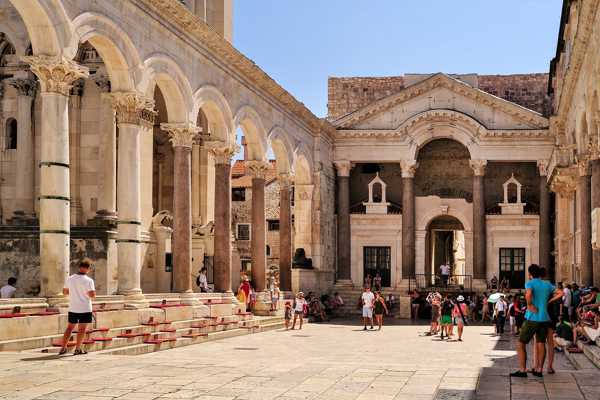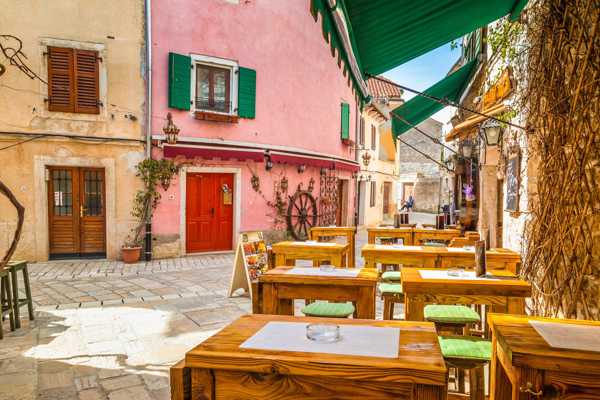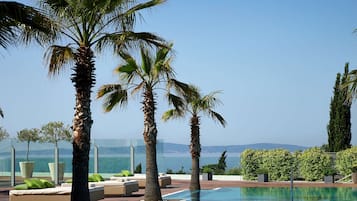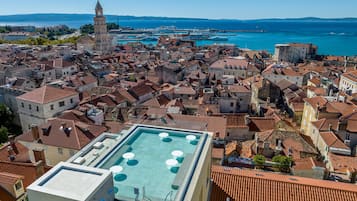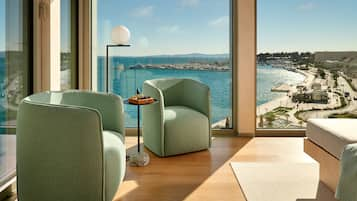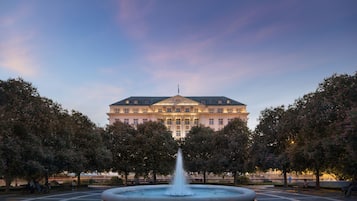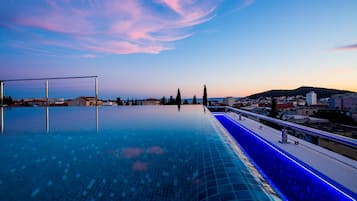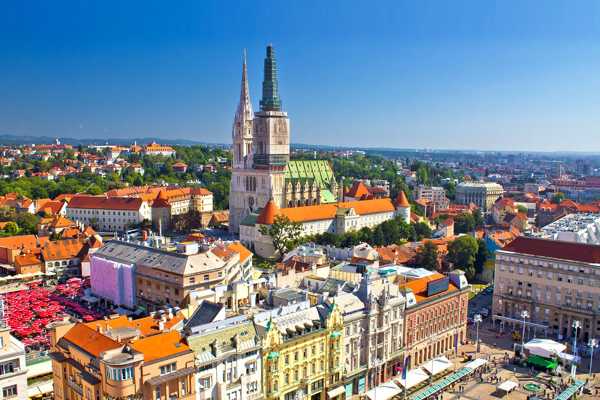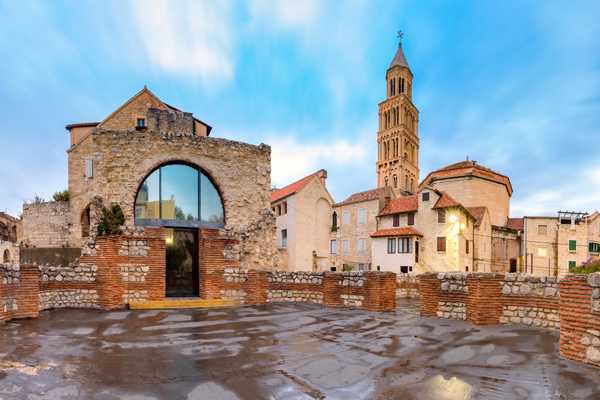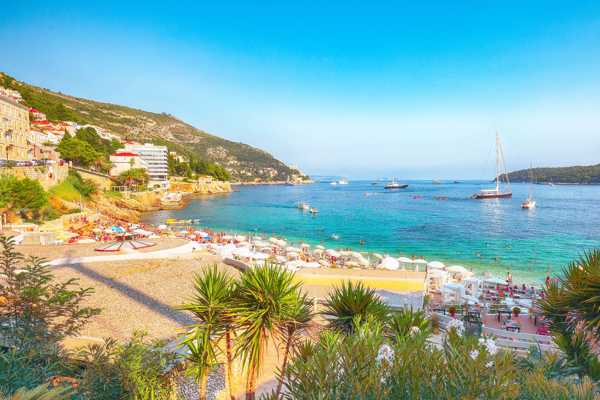Croatia has a wealth of heritage sites that stand as majestically as they did when the great maritime republic ruled the Adriatic waves. Some old cities were left in ruins, yet they still provide glimpses into how life was back in the days. Croatia’s stunning heritage sites range from walled towns to cities with landmarks dating back to Ancient Rome.
Some places in Croatia that time forgot are well-preserved and continue to inspire awe with their fairy-tale-like settings. No wonder, fantasy series Game of Thrones shot its memorable scenes here – the Diocletian’s Palace and Dubrovnik’s Old Town as examples. Many sites are open to the public, allowing you to experience some of these dreamy settings in Croatia yourself.
- 1
Dubrovnik Old Town
An ancient fortified city brimming with medieval treasures
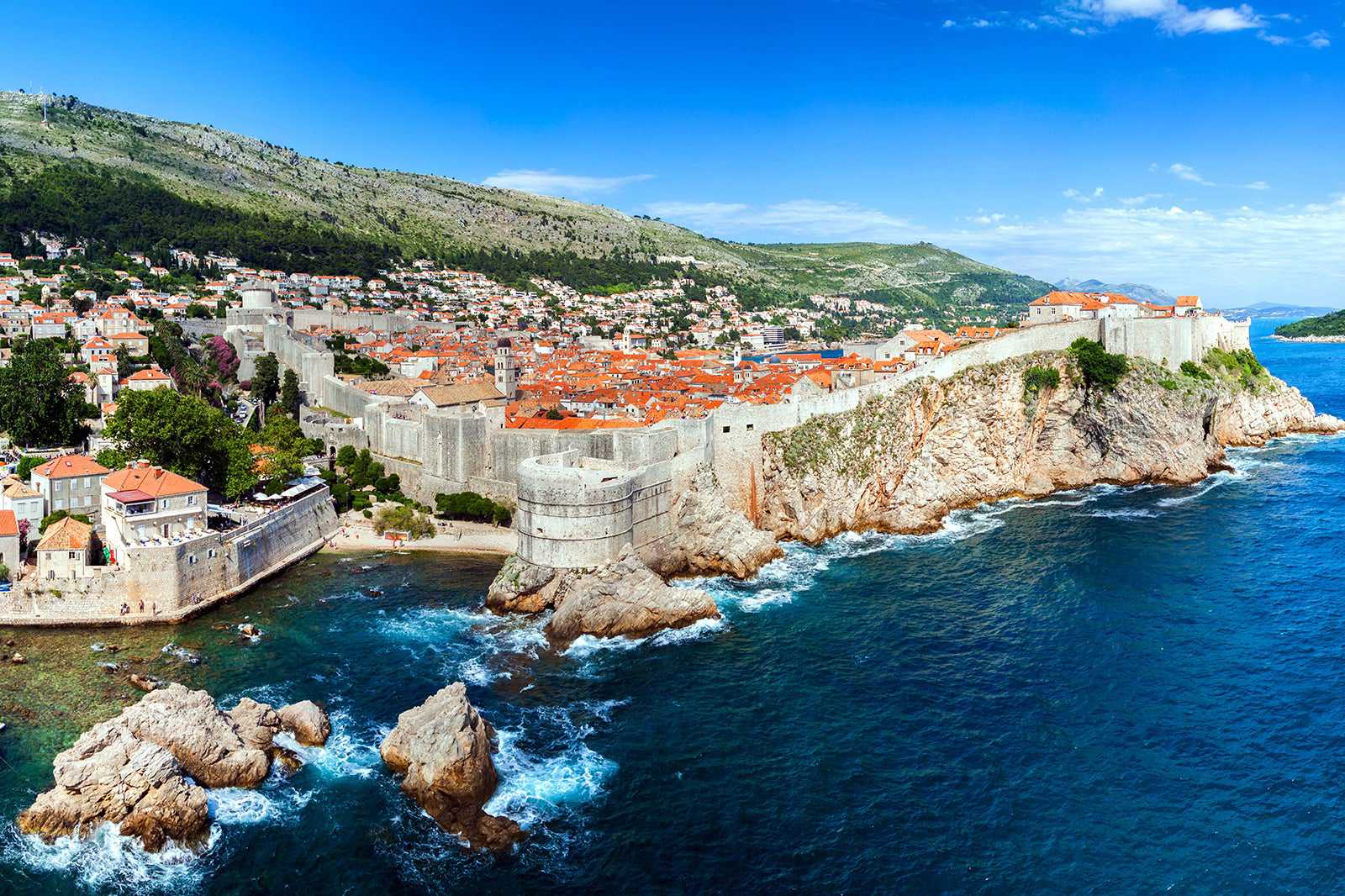
- History
- Photo
The old town of Dubrovnik in southern Croatia overlooks the shimmering waves of the Adriatic – surrounded by magnificent defensive stone walls that date back to the 12th century. Having withstood centuries of turmoil and the forces of nature, the whole town remained one of Europe’s most enduring treasures.
Town life flourishes within Dubrovnik’s walls. Walking the ramparts and through the limestone Stradun street, you can admire the old town’s collection of well-preserved buildings. Check out medieval monasteries and the baroque St. Blaise Church and Gothic Renaissance palaces like Divona and the Rector’s Palace.
Location: Dubrovnik, Croatia
Map - 2
Diocletian’s Palace
Explore one big neighbourhood of a palace

- History
- Photo
The port town of Split on the Dalmatian Coast is home to beautiful beaches and the magnificent 4th-century Diocletian's Palace. Stone pathways wind throughout the palatial complex, leading you to old but magnificent structures such as the Golden Gate. About half of the old town is actually taken up by the breadth of the palace grounds.
Walking through the maze of narrow alleys, you’ll easily feel lost in one big neighbourhood that’s dotted with ruins and old cathedrals. Check out the excavated lower chambers, grand vestibules (with a massive hole in the roof), the namesake emperor’s mausoleum, and Jupiter’s Temple near the imperial complex’s central square.
Location: Ul. Julija Nepota 4, 21000, Split, Croatia
Phone: +385 99 564 7111
Map - 3
Trogir Old Town
A fortified town on a small island

- History
- Photo
The preserved old town of Trogir brims with old buildings that date back centuries. You can easily stumble upon these on your strolls along the port town’s harbour streets as well as through Trogir’s maze of marbled pathways. The town is set within medieval walls on a small island between the mainland and Ciovo Island, and is connected to both by bridges.
The imposing 15th-century Kamerlengo Fortress looms at the southwestern end of the island. You can enjoy sweeping seascapes from its high walls. Similarly, the 13th-century St. Lawrence cathedral with the Chapel of St. John has a bell tower offering bird’s-eye views.
Location: Trogir, Croatia
Map - 4
Korcula Old Town
Visit the disputed birthplace of Marco Polo

- History
- Photo
Ask a Venetian, and they would contest to the claim that the island of Korcula is the birthplace of Marco Polo. Disputes aside, it’s home to one of Croatia’s stunning traditions, the Moreska sword dance. A narrow passage from the harbour leads you straight up to the heart of the 15th-century Saint Mark’s Cathedral, whose bell tower offers sweeping panoramas from the top.
The walled town has many medieval buildings and strolling along the old walls leads you to different observation decks, some with intact cannons. Learn more about Korcula’s past (and decide about the controversy for yourself) through interesting exhibits at Marco Polo’s museum and the town museum in Saint Mark’s Square.
Location: Staroj Gradskoj Korčula, Korčula, Croatia
Map - 5
Ciovo Island
A large island dotted by medieval villas and churches

- History
- Photo
Many visitors to the tiny island of Trogir extend their journeys to the larger Ciovo Island, where they can enjoy sandy and pebbly beaches. Sightseers are treated to charming villages with vineyards and hilltop churches, most of which date back to medieval times.
On the island’s far south-eastern tip, there’s the sanctuary of Our Lady of Prizidnica, which offers interesting architecture with breathtaking sea views. The village of Arbanija on the northcentral coast is home to the 15th-century Dominican Monastery of the Holy Cross, which features quaint cloisters and renaissance art-filled rooms.
Location: Ciovo, Croatia
Mapphoto by VitVit (CC BY-SA 4.0) modified
- 6
St. Nicholas Fortress
The triangular guardian of the Sibenik channel

- History
- Photo
Built in a uniquely trilateral form, the 16th-century St. Nicholas Fortress is considered one of the most impenetrable forts along the Croatian coastline. You can find this sea fortress at the entrance of the Sibenik channel, otherwise known as St. Anthony’s Channel.
Behind the fort’s sturdy white stone walls lies rich history. Take a peek inside the many subterranean chambers, where you’ll find remnants from World War II. The fort is reachable via a beach path, but due to its remote location on Sibenik’s north-western tip, many prefer visiting the fortress by boat.
Location: Sibenik, Croatia
Mapphoto by Tihomir06 (CC BY-SA 4.0) modified
- 7
Zadar Old Town
One of Croatia’s oldest inhabited cities

- History
- Photo
Behind Zadar’s modern façade of vibrant festivals and innovative monuments – the Sea Organ and the solar-powered Monument of the Sun to name a few – lies the beautiful Old Town. The town features old buildings and ruins whose architectural stylings hark back to Roman, Byzantine and Venetian times.
Check out the 9th-century Church of St Donat, built in a cylindrical shape, the Five Wells Square where Venetians used to source their water, or the Roman Ruins with its slightly out-of-place column called the Pillar of Shame – said to have been taken from the Roman Forum in Italy and used for punishing criminals.
Location: Zadar, Croatia
Map - 8
Porec Old Town
Stroll through Roman streets

- History
- Photo
At a small tip on the Istrian Peninsula, the old walled town of Porec is filled with sites that date back to Roman times. Even its symmetrical layout is typically Roman – the best example is the town’s 2 main intersecting streets, Decumanus Maximus and Cardo Maximus.
Porec Old Town is compact enough to explore within half a day. Guarding the entrance to the town’s centre are 2 towers. After exploring the Marafor Roman square, you can check out the majestic atrium of the world heritage-listed Episcopal complex of Euphrasian Basilica, which dates back to the 4th century.
Location: Porec, Croatia
Map - 9
Pula Arena
Croatia’s own magnificent Colosseum

- History
- Photo
Thanks to its connection to Ancient Rome, Croatia has a good share of magnificent Roman landmarks – Pula Arena is among the best examples. Unlike many other Roman amphitheatres that remain existing today, this huge arena uniquely has very well-preserved architectural features.
A landmark of grandeur to admire, Pula Arena has an underground space where exhibitions are regularly held. Its ancient use for public entertainment continues to this day – minus the bloody gladiatorial battles. It regularly hosts film festivals and music concerts, with remarkably great acoustics, too.
Location: Flavijevska ul., 52100, Pula, Croatia
Map - 10
Salona Roman City Ruins
Stroll through the remains of an ancient city

- History
- Photo
You can find vast grounds dotted with the ruins of an entire Roman city in Salona, just a few minutes’ drive northeast from the Croatian town of Split. The ancient city, once served as the capital of the Roman Dalmatian province, is now an archaeological park where you can stroll through and step back in time.
Trails throughout Salona are clearly marked in English, making for easy navigation throughout the city ruins. You can easily make out the remains of what used to be a network of aqueducts and ‘thermae’ baths, and that of Salona’s own Roman amphitheatre.
Location: Solin, Croatia
Mapphoto by Carole Raddato (CC BY-SA 2.0) modified

